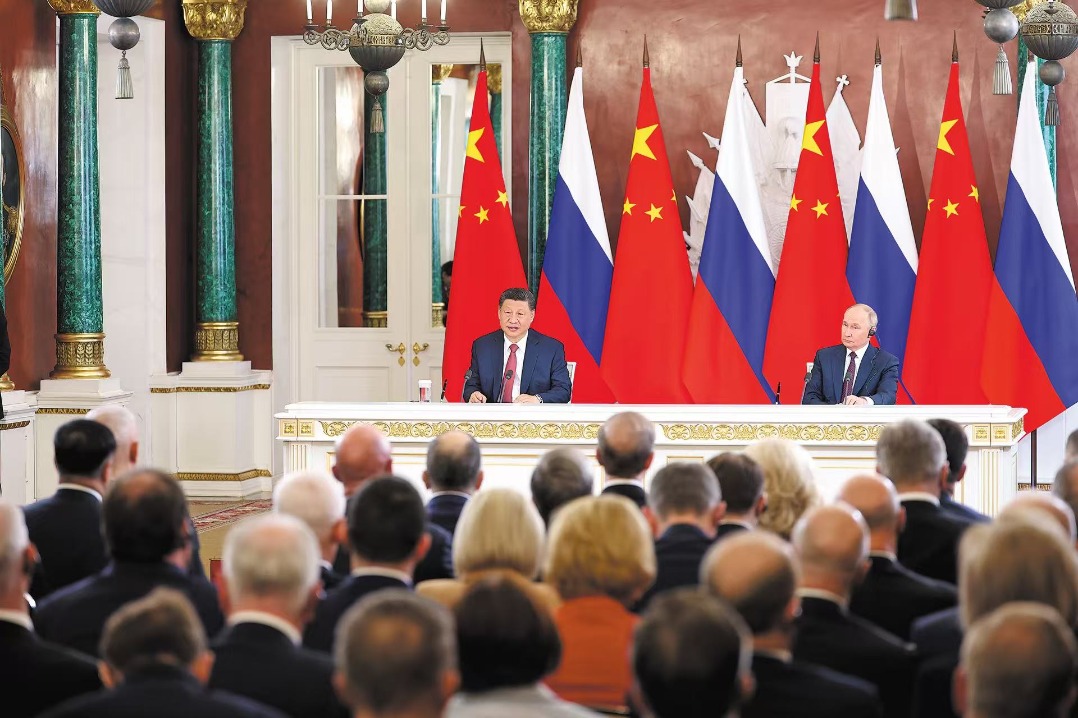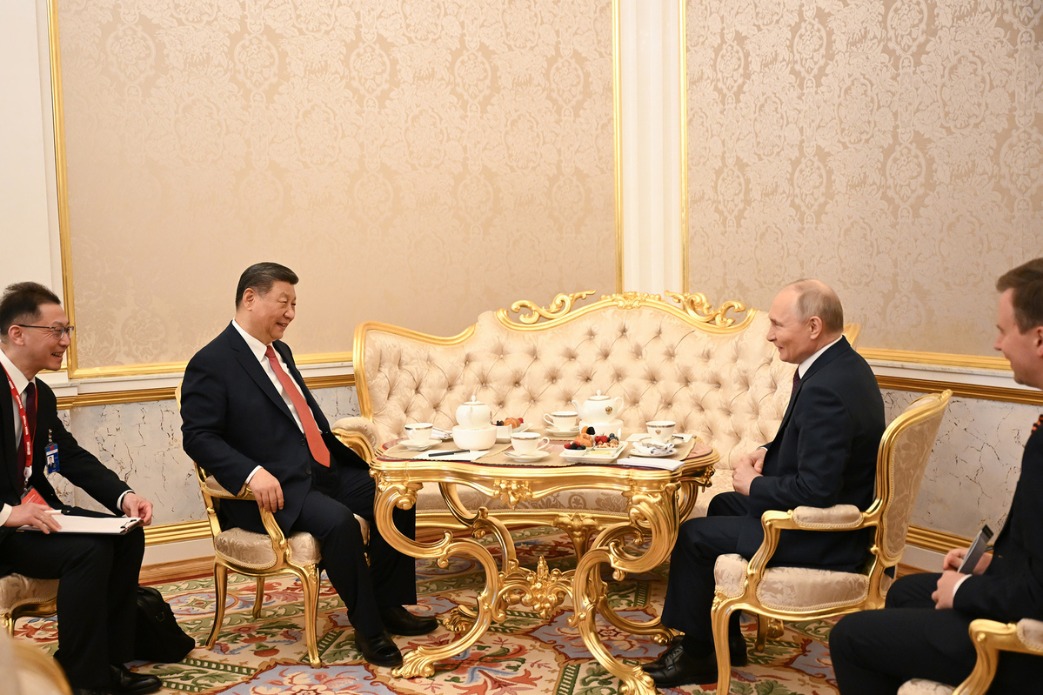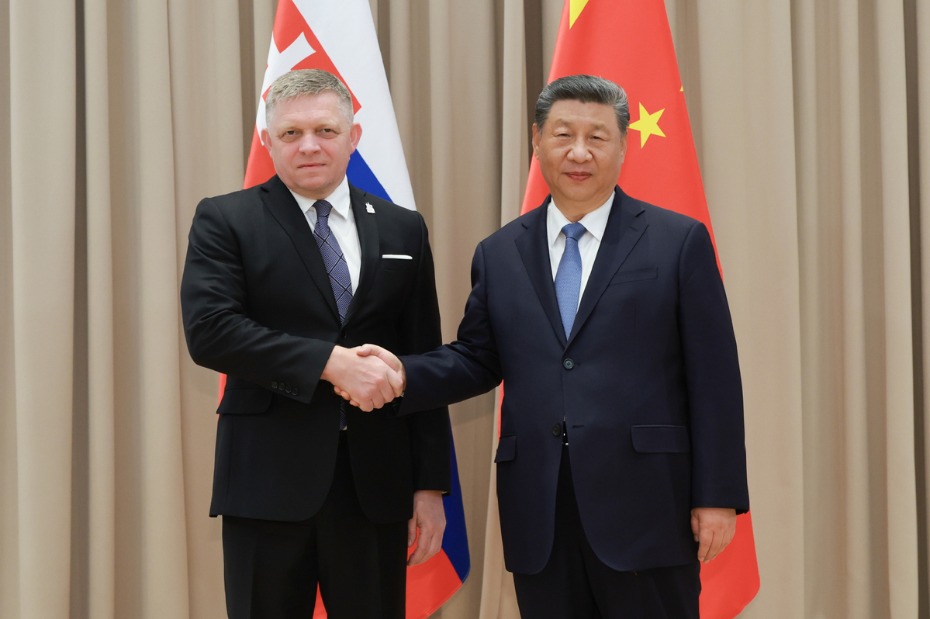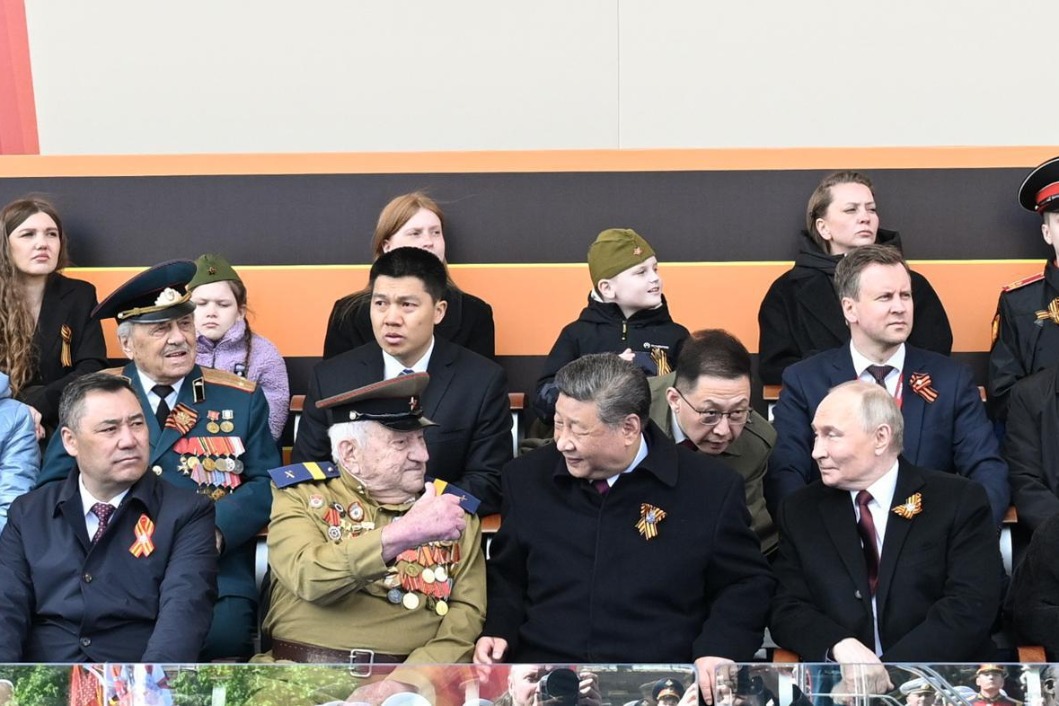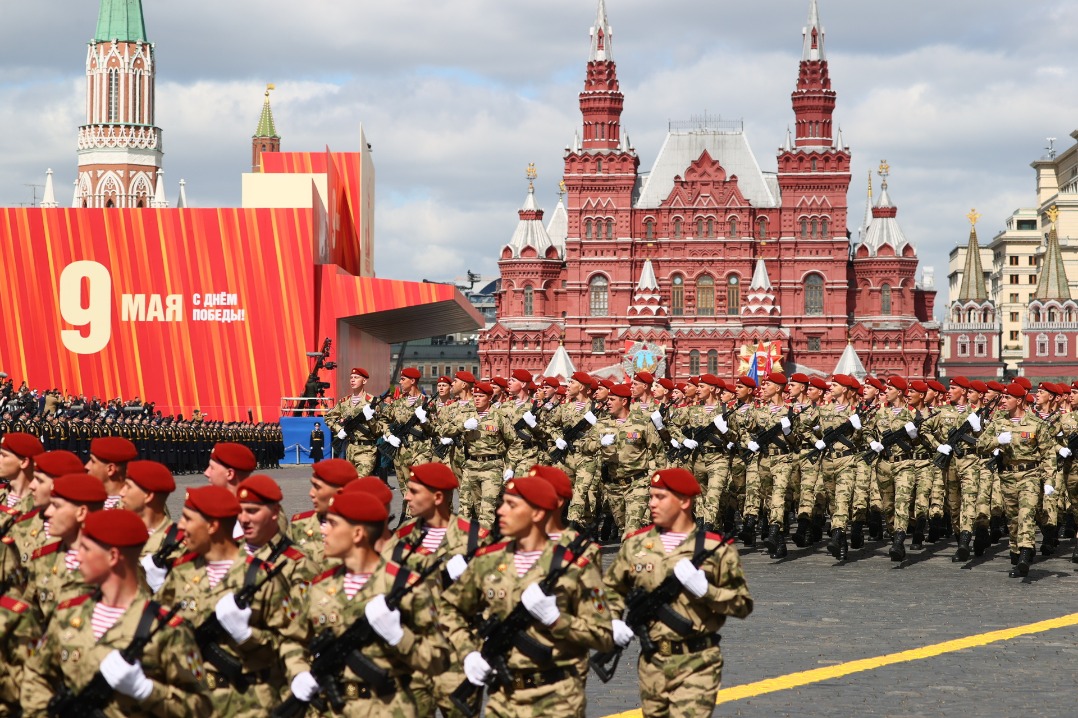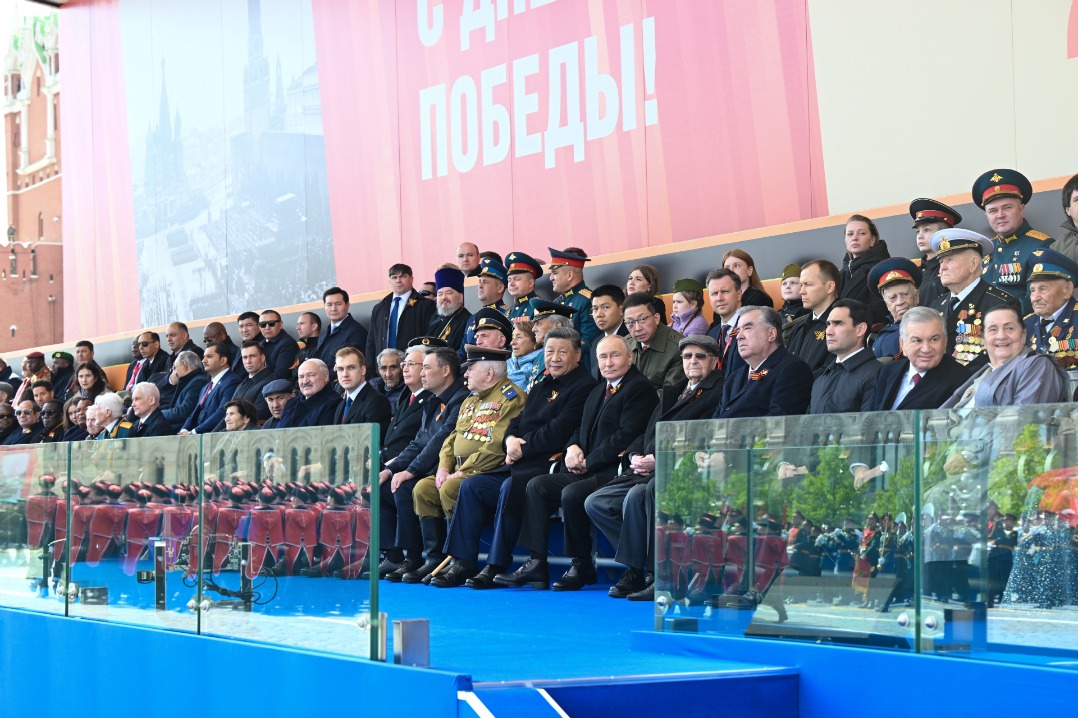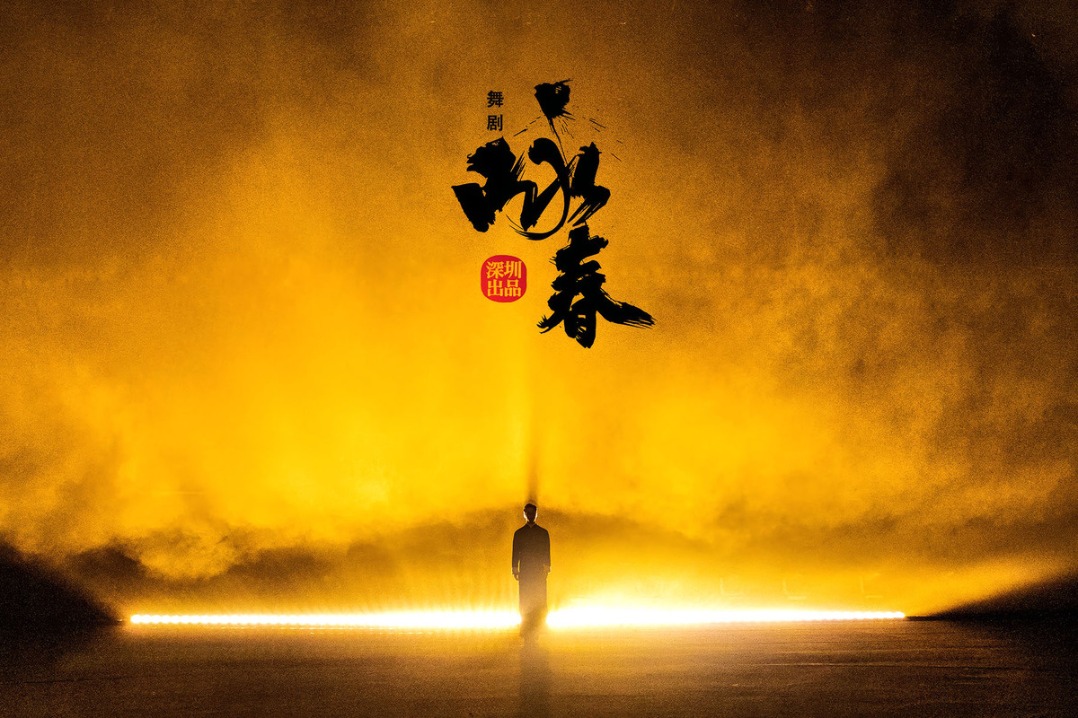When pioneers of Montage met Chinese culture

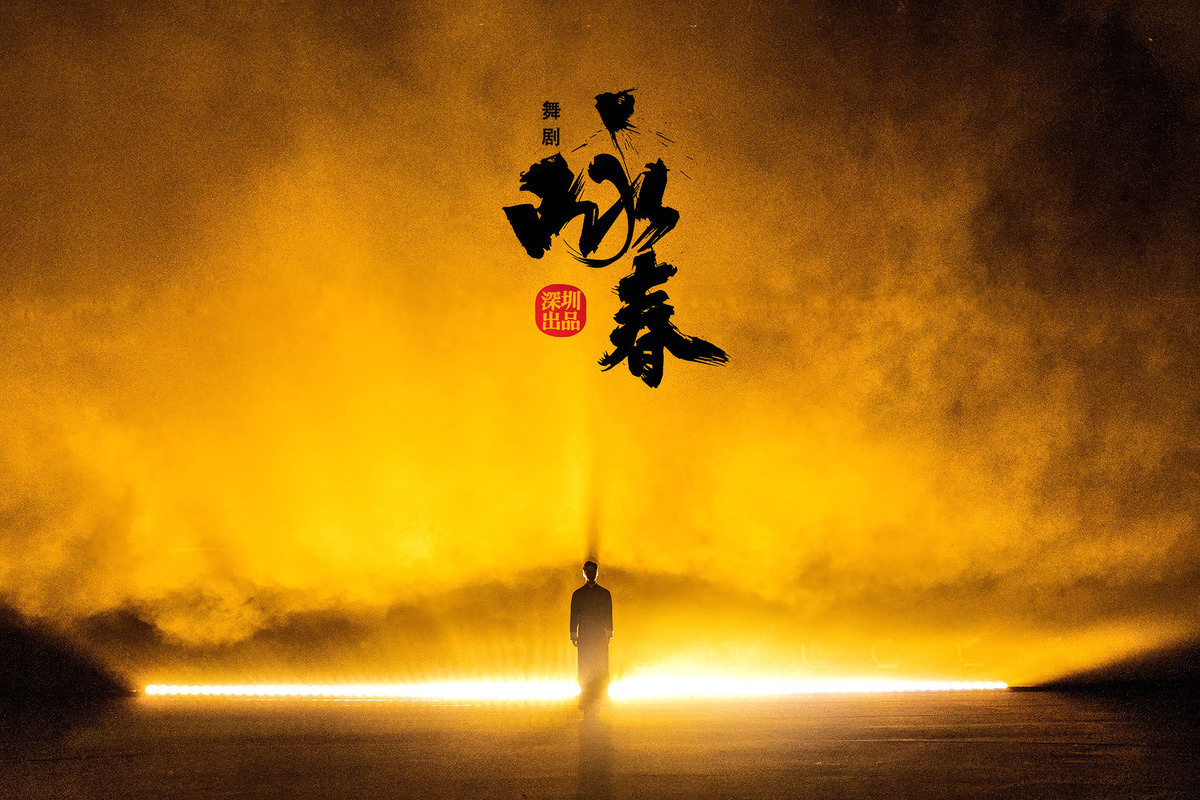
Nestled in Moscow's Mira Avenue, the State Central Cinema Museum boasts a unique permanent exhibition — a meticulous reconstruction of Sergei Eisenstein's apartment. Filled with hundreds of his personal artifacts, the exhibition serves as a testament to the cultural developments that shaped the artistic vision of the pioneering Russian director.
Visitors studying this recreated environment can see the surprising connection between different civilizations and the influence of Russian and Chinese cultural exchanges on cinema.
In the 1920s, the Soviet Montage Movement, spearheaded by pioneers such as Eisenstein, Vsevolod Pudovkin, Alexander Dovzhenko, Lev Kuleshov and Dziga Vertov, sought to revolutionize cinema with innovative techniques. Their montage methodology influenced directors across the world, including China, and had a huge impact on film aesthetics. Montage refers to the technique of selecting, editing, and piecing together separate sections of a film to create a cohesive whole or sequence.
As early as 1932, young Chinese playwrights Xia Yan and Zheng Boqi translated Pudovkin's works, introducing Soviet film theories to China. This sparked Chinese film enthusiasts' interest in the montage theory, with numerous articles published in Chinese journals and newspapers, popularizing the notion of modern filmmaking in China.
During this period, Soviet films such as Storm Over Asia, Road to Life, Chapayev, and Mother were screened in China, introducing new creative paradigms and aesthetics that were lapped up by left-leaning Chinese directors. This trend laid the groundwork for the creative surge among Chinese directors such as Cheng Bugao and Cai Chusheng in the 1930s and 1940s.
After the founding of the People's Republic of China in 1949, Soviet cinema and its production techniques became models for Chinese filmmakers, evident in the huge number of Soviet films screened in China and the increasing interactions between filmmakers of the two countries. This was a significant period in the history of Sino-Russian film relations.
Flipping the historical mirror, we can see another facet of the cultural exchanges between China and Russia — China's profound influence on Eisenstein. His apartment is a treasure trove of Chinese books and artifacts, reflecting his deep engagement with Chinese art and philosophy. Eisenstein found inspiration in the Chinese hieroglyphics, which he believed embodied the essence of montage. His study of Chinese landscape paintings led to concepts like the "musicality of landscapes", which he used in his films.
In 1935, Eisenstein engaged with Mei Lanfang's Peking Opera troupe during their visit to Moscow, filming and writing about the experience. He recognized Peking Opera as not just a theatrical form but an expression of a worldview. That same year, he received works by French sinologist Marcel Granet, which deepened his understanding of Daoist philosophy and the yinyang theory. Eisenstein saw these concepts as providing a higher-level framework for montage than Hegelian dialectics, influencing his unfinished magnum opus, Method.
The year of 2025 marks the 80th anniversary of the victories of the Chinese People's War of Resistance Against Japanese Aggression (1931-45) and the Soviet Union's Great Patriotic War.
In 2025, film enthusiasts are also commemorating the centennial of Battleship Potemkin directed by Eisenstein and the 120th anniversary of the birth of Chinese cinema. These milestones prompt people to reflect on the profound history of cultural exchanges between Chinese and Russian filmmakers, as well as other creative artists. The concept of a "new Sino-Russian cinema" rooted in the shared artistic tradition could potentially chart a creative and artistic path for filmmakers across the border.
Films, as global cultural products, play a crucial role in fostering cultural identity and emotional resonance. By leveraging our geographical and historical ties, we can deepen our collaboration in content development, film co-production and market exchanges. Let us draw inspiration from the past to promote innovation in present times, and continue the creative dialogue between Russia and China.
In revisiting the journeys of pioneers such as Eisenstein, we find not just a shared history but a road map for future collaboration. As we raise a toast to these creative minds, let us also drink from the wellspring of creativity they have left behind, discovering anew the power of art to transcend boundaries and unite cultures.
The author is deputy dean at the School of Film Art, China Academy of Art. The views don't necessarily reflect those of China Daily.
If you have a specific expertise, or would like to share your thought about our stories, then send us your writings at opinion@chinadaily.com.cn, and comment@chinadaily.com.cn.
















